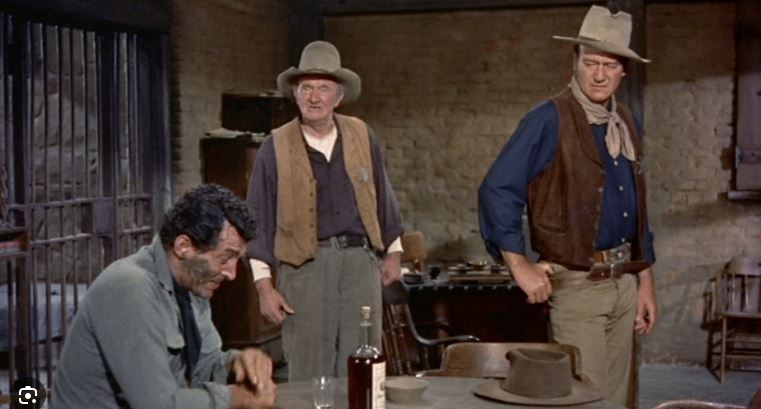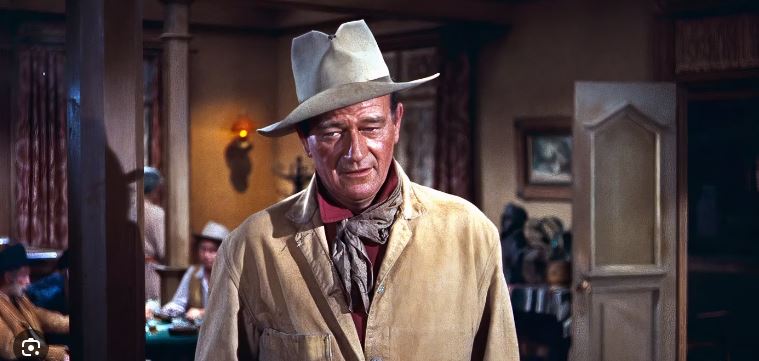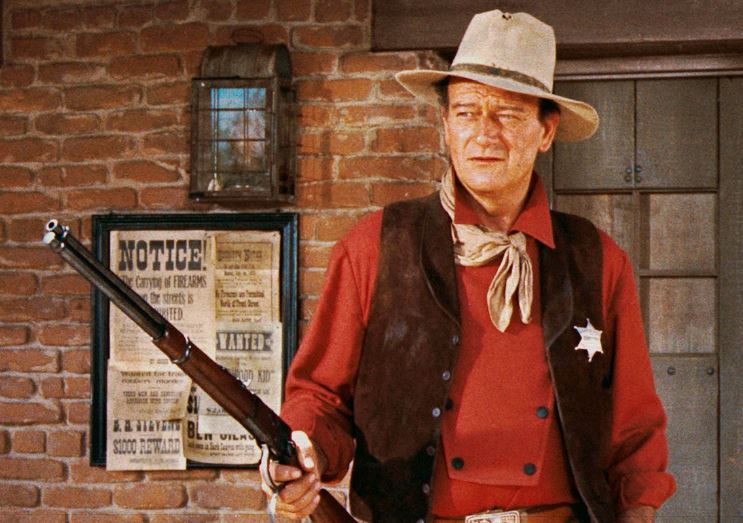Comfortable in his status as one of Hollywood’s biggest stars, John Wayne became increasingly outspoken the longer his career wore on. His political beliefs are as synonymous with his persona as the onscreen mythology he built around himself, playing countless steadfast and stoic heroes.
When his time in the spotlight began winding down in the 1970s, ‘The Duke’ was regularly found lamenting what the industry had become. ‘New Hollywood’ was on the rise, and the explosion in taboo-tackling and boundary-pushing stories being told by a fresh generation of auteurs left a bitter taste in his mouth.

Two decades earlier, though, Wayne was about the staunchest anti-communist in Tinseltown. He openly and actively decried the party’s perceived influence over the business he cherished so dearly, which caused him to not only reject the lead role in an Academy Award-winning classic but mount his own version in response.
The Duke wasn’t the only one who turned down the part of Will Kane in High Noon before Gary Cooper stepped into the breach and won an Oscar for ‘Best Actor’. Gregory Peck, Marlon Brando, Montgomery Clift, and Charlton Heston also rejected the opportunity, but Wayne was the only one who knocked it back for political reasons.
The narrative tracing a veteran marshal preparing to leave small-town life behind to start a new one with his new bride was hugely controversial at the time due to its allegorical connections to the communist witchhunt, with screenwriter Carl Foreman one of the names blacklisted in the 1950s due to his suspected ties to the party.
Wayne blasted it as being un-American, with the subplot of a sheriff asking the locals to assist in ridding their home from an outside threat rousing suspicions of carrying communist subtexts, while the hero wasn’t a rugged, tough guy in the classic western mould, but rather an everyman who realises that wading into battle as a one-man army carrying a six-shooter was destined to end in death and defeat.
Wayne and Cooper may have been friends, but The Duke nonetheless said he would “never regret having helped run Foreman out of the country” during the height of Hollywood’s communist fears, although he was at least respectful enough of his buddy to collect Cooper’s Oscar on his behalf.

Their bond may have survived Wayne’s issues with High Noon, but he still refused to take it lying down. Seven years later, The Duke headlined Howard Hawks’ Rio Bravo, which carried a very similar storyline. In his western, the actor’s John T Chance is a small-town sheriff forced to repel an incoming threat, but he does so by assembling a motley crew and taking the fight to their assailants in a more gun-ho fashion.
Whereas High Noon ended with the townsfolk praising Kane after refusing to help him – indicative of how many industry figures remained silent until the blacklist was over – Rio Bravo was cut from a more conventional cloth that painted Wayne’s protagonist as an unstoppable force, immovable object, and uniting hero who gets the job done and saves the day with a minimum of fuss.
Rio Bravo salutes the strength of the individual, the lawmen who take matters into their own hands, and the few who protect the many. It wasn’t subtle, nor was it blatantly political in its message. However, given Wayne’s well-known disdain for High Noon and the subtext that irritated him so greatly, it’s telling that he mounted a spiritual successor just a few short years later that put the thematic shoe on the other foot to give ‘The Duke’ yet another opportunity to indulge his fondness for embracing western archetypes where cast-iron Americana seeped out of his every pore.
